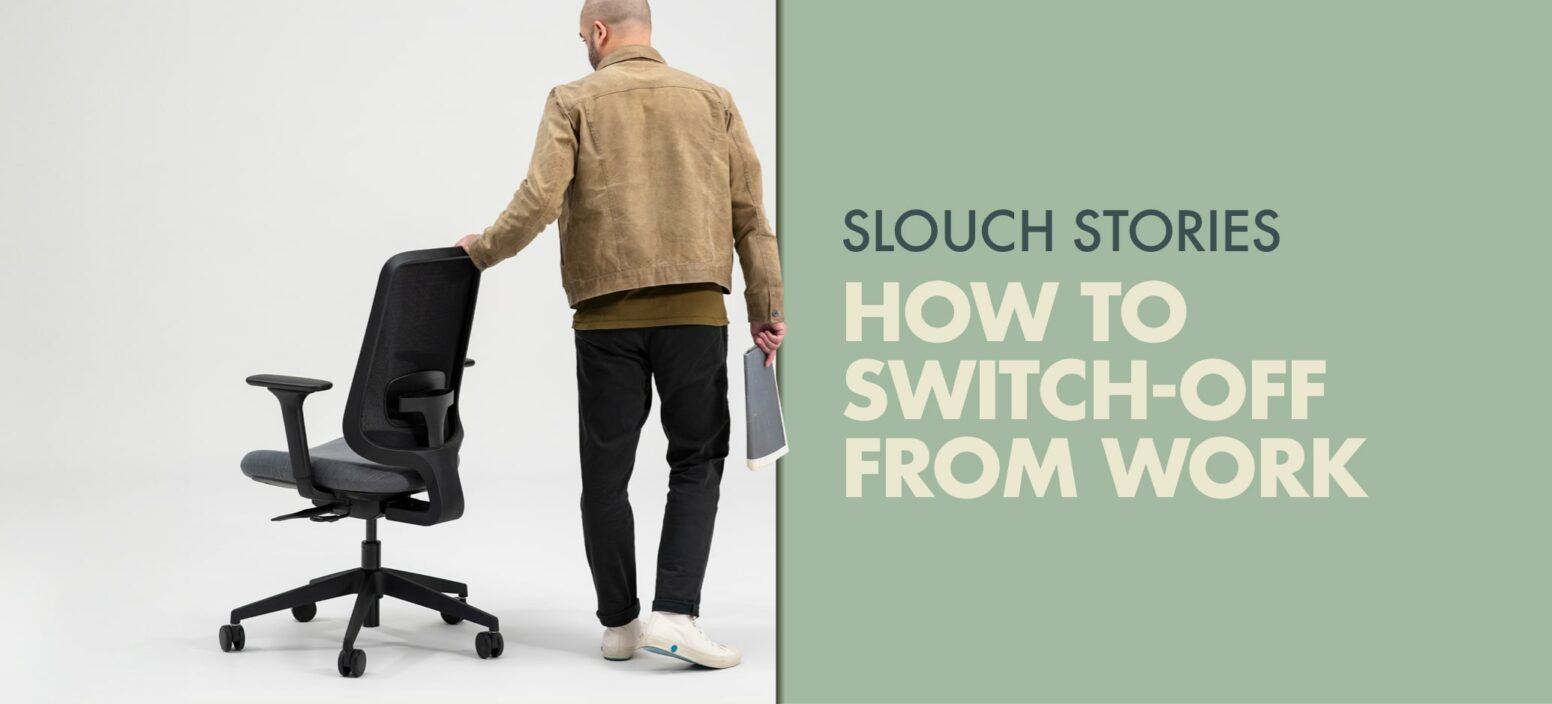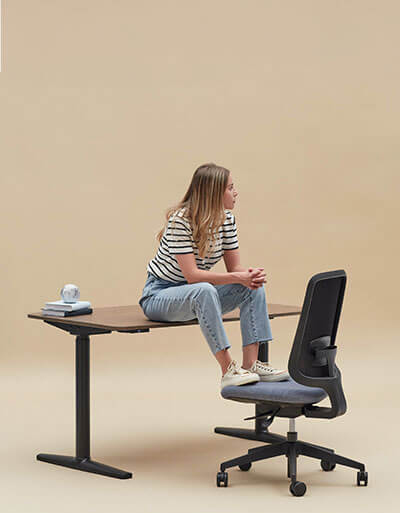If you’re finding work stress invading your downtime it might be time to develop some strategies for how to stop thinking about work and switch off.
At Slouch we don’t just encourage you to look after your physical wellbeing with a comfy desk chair that supports your working environment. We also advocate mental wellness as a key aspect of doing your best work. In fact, working at full steam without enough meaningful breaks will actually hinder your progress, not help it.
So keep reading for some practical guidance on how to stop worrying about work.
Learning how to stop thinking about work is a skill
Accepting this fact is a critical first step.
Think about it: if it wasn’t a skill you must develop, you’d just be able to do it and could save yourself a lot of worry and anxiety.
So, just like any other skill you develop, learning to keep your working life compartmentalised requires discipline and practice to get better at it.
Luckily, there are plenty of methods for honing this skill. The more you practise, the better you’ll get – in just the same way that you’d need to regularly exercise to build muscle tone.
Our top strategies to stop thinking about work
- ‘Unplug’ from work technology
With working from home becoming more common, work tech can easily start to seep into everyday life. Try to create a hard boundary between work time and your personal life that gives you mental distance from work. This might mean:
- Setting up an out-of-office response when you’re not working so that you can mute your work email notifications
- Disconnecting your work email from your personal mobile
- Turning your work mobile off and putting it in a drawer outside of working hours
- Not looking at work messaging platforms like Slack or Teams outside of working hours
If you work from home, you’re at an even higher risk of your personal and work life bleeding into one another. After all, they share the same space. Establishing strict physical boundaries can help you to unplug by creating much-needed mental separation.
- Practice meditation or mindfulness
Part of how to stop thinking about work is working on halting overthinking in its tracks. However, quieting your mind isn’t always easy.
If you find yourself lying in bed with a racing mind, you might want to give meditation techniques a try.
Many swear by the inner peace they achieve from being able to consciously empty their minds at will. It often takes time and practice but can be a really useful tool if you’re looking into how to stop thinking about work at night.
Alternatively, give yourself some dedicated time for mindfulness. Perhaps plug into one of the best manifestation podcasts and take some time to truly be engaged and in the present.
- Spend more time on hobbies
Take some time to try new things. Having a range of fun activities you can do to switch off before or after work regardless of the season is a brilliant way to divert your attention from work.
If you choose hobbies with a social component – like life drawing classes, a book club or a team sport – you’re also likely to make new friends. This is all part of the process of creating meaning, joy and identity outside of work.
- Control the controllable
There are plenty of aspects of whatever job you do that you won’t be able to control and might cause work stress. However, you can take ownership of your working environment.
Get your home office set up as a tranquil and focus-friendly space by ensuring you have all of the office essentials you need, keeping your office tidy and using quality office furniture to keep you comfortable all day.
- Make your free time count
Ever feel like between going to work and then worrying about work afterwards there isn’t enough time in the day?
Well – we can’t put more hours in the day. But this next tip for how to stop thinking about work is scientifically proven to make it feel like you do. Keep reading, we’ll explain all…
Psychology research shows us that ‘novel and emotional experiences dilate subjective time’. In other words: life feels longer and more fulfilling when we do more enjoyable things outside of our ordinary routines with other people.
These experiences don’t have to take lots of time or be expensive, either. Here are a range of low to medium-budget ‘novel’ activities you can do with friends after work:
- Attend a pub quiz
- Browse a tabletop sale
- Have a picnic dinner outside
- Go to a local open mic night
- Try out an escape room
- Host a cheese and wine evening
- Go axe throwing
- Attend a live filming of a podcast
- Go on a dog walk somewhere picturesque
- See music or comedy gig
- Improve your sleep hygiene
Do you struggle to fall asleep because you can’t stop worrying about work at night? Here’s how to stop thinking about work at night: better sleep hygiene.
Start by setting a consistent bedtime and time to wake up. Then create a relaxing pre-bed ritual that helps you stop thinking about work – maybe a warm bath, some light stretches or reading a book. Lastly, ensure your bedroom is dark and quiet.
This should all add up to a more healthier sleeping routine where your mind is off work and you’re ready to sleep when you head to bed.
Tip: Avoid screens at least an hour before bed, as the stimulating blue light can make it harder to drift off.
The negative effects of work stress
If you can’t switch off from work and don’t take time to reset your relationship with it, you might be putting yourself at risk from increased stress. Take a closer look at how stress could affect you if left unchecked:
- Physical symptoms – Chronic work stress can lead to a weakened immune system, persistent headaches, insomnia and muscle tension.
- Mental symptoms – As you might imagine, stress can negatively affect your mental health, potentially leading to anxiety and depression.
- Strained personal relationships – Constant preoccupation with work can leave you with less energy for friends and family.
Take the time to address work stresses and create healthy coping mechanisms before you suffer the negative effects.
A better working environment starts here
We hope that you find some of the tips in this guide helpful in building back your work-life balance. However, if you feel like that balance has already slipped too far, you might want to take some advice on how to recover from burnout and feel like yourself again.
For working days where you’re fully supported from 9 to 5, take a look at our specially engineered ergonomic office furniture.
For the rest of the time, remember to prioritise self-care and making time for hobbies, friends and family. That way you can start each day as your happiest, best self.
Contact the friendly experts at [email protected] if you have any questions or queries about our office furniture.

